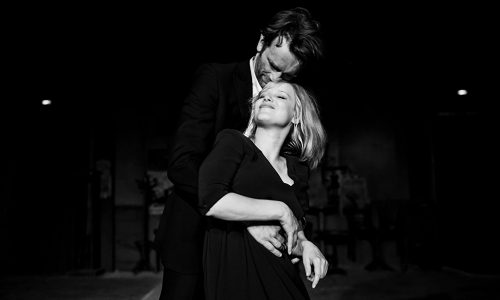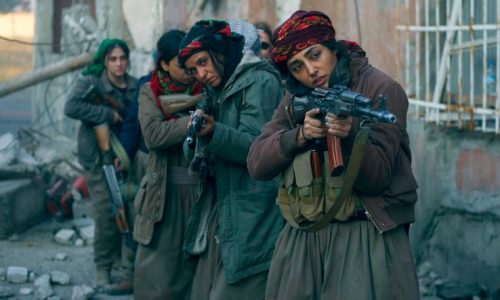Spike Lee is back in competition in Cannes for the first time since Jungle Fever, 28 years ago, with (read it carefully) BlacKkKlansman – a real-life story about a black police officer who infiltrated the violently racist, hooded, Ku Klux Klan movement in the 1970s.
His is one of only two American films – and only two in English – among the eighteen features so far announced to be competing for one of the most prestigious awards in the industry, the Palme d’Or.

The other US contender is David Robert Mitchell’s black comedy Under the Silver Lake, starring British actor Andrew Garfield. The head of the festival, Thierry Fremaux, has dismissed suggestions that he is trying to limit the American presence at the festival, arguing that most US art films prefer to wait until later in the year to premiere at festivals that will bring them to the attention of Oscar voters.
With additions to the programme expected to be announced in the coming week, there’s speculation – in the British press at least – that festival favourite Mike Leigh’s historical Peterloo could yet contest the top honour, but without that, the closest the UK will get to the competition will be the Polish love story Cold War, part-funded by the BFI and Film4 and directed by British-based Pawel Pawlikowski.
Cold War has Amazon on board as its US distributor, which despite its online presence has satisfied the Cannes selectors that it can compete for the Palme d’Or. It’s rival studio Netflix will not have a presence on the Croisette this year because its refusal to release its films theatrically in France – because French law requires a three year gap between a theatrical release in the country and on-demand viewing – disqualifies it from the competition and in response to that, it’s decided not to submit its features for the out-of-competition strands.
Jafar Panahi is the second Iranian director – after the festival opener Asghar Farhadi – to feature in the line-up, with what’s been described as his “feel good” Three Faces, about three actresses, at different stages of the careers.

In the first Cannes selection to follow the #MeToo and #TimesUp campaigns, eyebrows have been raised about the fact that only three of the 18 competition films are directed by women; Lebanon’s Nadine Labaki with Capernaum, Italy’s Alice Rohrwacher with Happy as Lazzaro, Eva Husson’s Les Filles du Soliel, or Girls of the Sun.
Fremaux has insisted that there will be no quota for female directors at Cannes, where he insists that films are selected for their quality.
Cannes is a festival known for welcoming back the same film-makers, time and time again, with Italy’s Matteo Garrone returning with his drama Dogman, his fourth to feature in the official competition, after Gomorra, Reality and Tale of Tales. Stéphane Brizé competed three years ago with Measure of a Man and is back with a drama known by its English title At War. Another French director, Christophe Honoré last competed for the top prize in 2007 and is in the running again this year with a film known as Sorry Angel. Burning will be South Korea’s Lee Chang-dong’s third film in competition at Cannes. China’s Jia Zhangke will be making his fifth attempt to win the Palme d’Or with Ash is the Purest White, while Shoplifters will be the fifth time in the official competition – as well as having two films in the Un Certain Regard sidebar – for Japan’s Hirokazu Kore-eda.
But unusually for Cannes, eight of the 18 directors on the shortlist have never competed for the Palme d’Or before, among them another Japanese director, Ryûsuke Hamaguchi, with the mystery Asaka I & II. Russia’s Kirill Serebrennikov will be in the running for the top prize for the first time with Summer, although his film The Student was selected for the Un Certain Regard programme two years ago. And Egypt’s Abu Bakr Shawky has made it onto the shortlist for one of the industry’s most coveted awards with his debut feature, Yomeddine.

Last – but by no means least – comes a director whose work is so deeply entwined in the French psyche that it has inspired the official poster of the Cannes Film Festival not once, but twice. With the organisers usually selecting images from classic films, it’s highly unusual for a director to be in competition for the Palme d’Or inside a festival cinema, branded with an image from one of his own films, but with this year’s poster featuring an image from his 1965 film Pierrot le Fou, 87 year old French New Wave icon Jean-Luc Godard has his eighth shot at the festival’s top prize with The Image Book.
The prizes in the main competition will be decided by a jury headed by the Australian actress Cate Blanchett, with the winners announced at the end of the festival, on 19th May.
